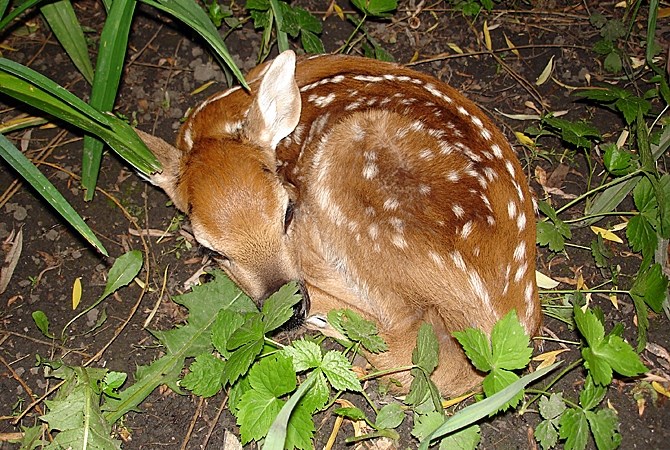
Image Credit: wikipedia.org
May 30, 2015 - 8:31 AM
THOMPSON-OKANAGAN – Encounters with wild animals don’t happen every day so it’s hard to know what to do when you come across a baby animal you think might have been abandoned by its parents.
Fairfield Animal Hospital in Kelowna says this year they have seen more baby wild animals than ever brought to their clinic by well-meaning people who think they are saving a life. More often than not, they say, the animal would have been better off left where it was.
“Every year at Fairfield Animal Hospital, a number of wildlife species are brought to us with suspected injuries,” says a post on their Facebook page. “This year has been no exception; in fact we have seen even more presumed-injured wildlife this year than in previous years.”
Although the individuals mean well, unnecessarily ‘rescuing’ wildlife can do more harm than good and can even result in the death of the animal.
“Wild animals are dedicated to looking after their young and will not abandon their offspring,” the post says. “They will however, leave them alone for prolonged periods of time while hunting and foraging for food.”
Greig Bethel of the Ministry of Forests, Lands and Natural Resource Operations says although the most common animals thought abandoned are birds, larger animals like young deer, elk and moose are also found and ‘rescued’ while merely waiting for their parents to return.
“It is normal for mother deer, elk and other ungulates to leave their young alone for long periods, returning a few times a day to nurse, and relying on the newborn’s lack of scent to protect them from predators,” he says. “Returning mothers that find humans or pets nearby may leave or can become aggressive to defend their offspring from the perceived threat. The mother will return if the young is left alone.”
Provincial biologists say in a release that the best course of action when you come across an animal you think might be abandoned is to leave it where it is.
If you see an animal favoring a leg or wing, bleeding or having difficulty breathing, call the BC SPCA Provincial Call Centre at 1-855-622-7722. For a list of wildlife rehabilitators near you, visit the Wildlife Rehabilitators Network of British Columbia.
To contact the reporter for this story, email Adam Proskiw at aproskiw@infonews.ca or call 250-718-0428. To contact the editor, email mjones@infonews.ca or call 250-718-2724.
News from © iNFOnews, 2015